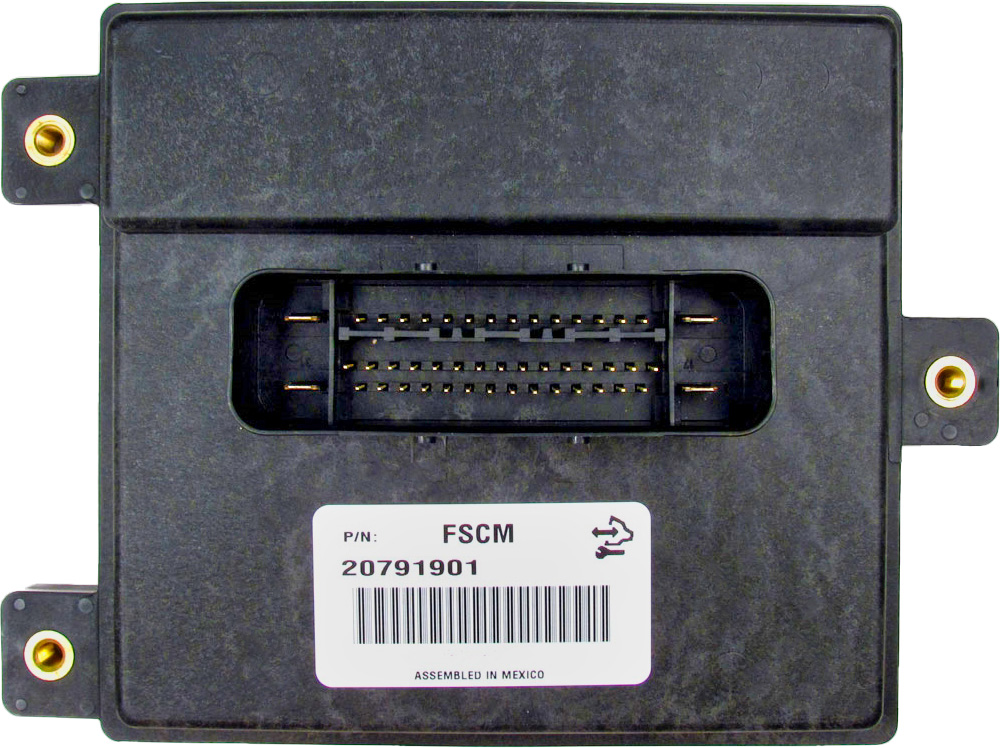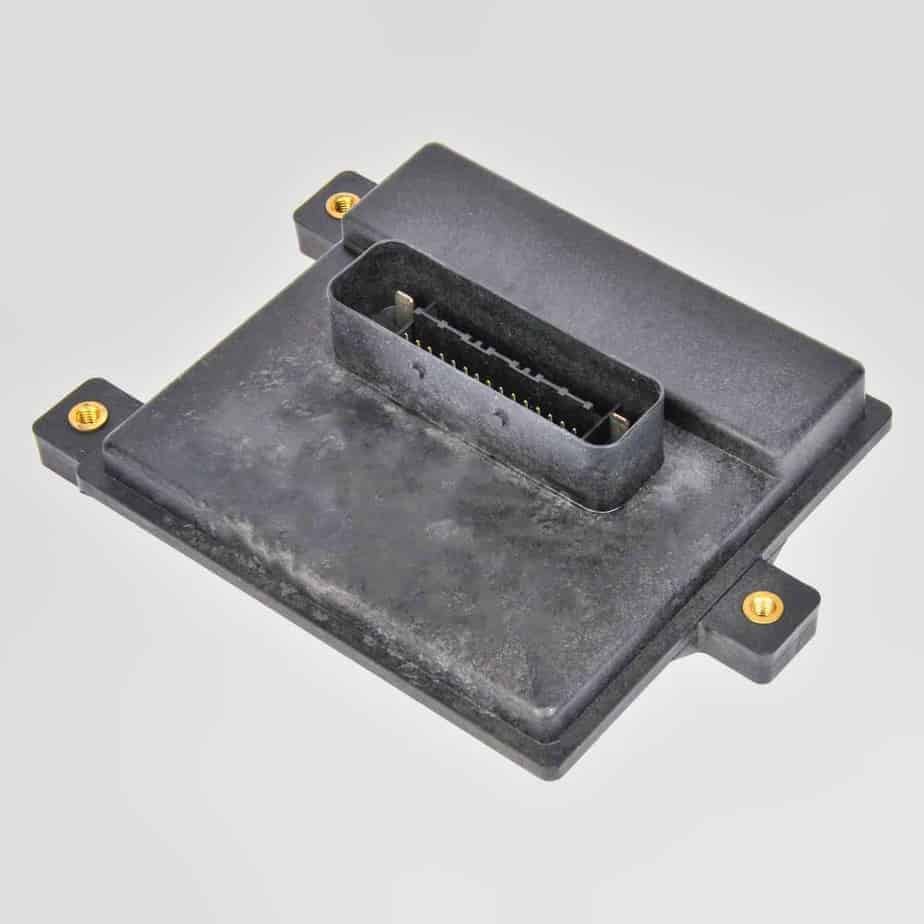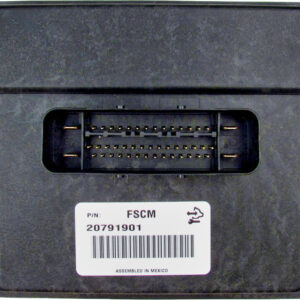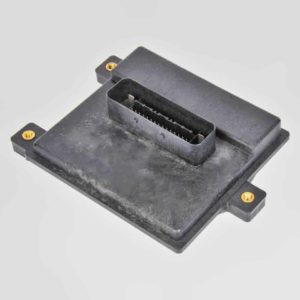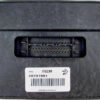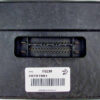Restore Your Truck’s Power and Reliability
If your 2010-2012 Cadillac Escalade EXT is suddenly stalling, refusing to start, or running rough, a failing Fuel System Control Module (FSCM) is a very likely culprit. As a technician with over two decades of experience, I’ve seen this exact issue countless times on GM trucks and SUVs. The FSCM is the brain of your fuel delivery system, and when it fails, it can leave you stranded without warning. This isn’t just an inconvenience; it’s a critical failure that needs a reliable solution.
This isn’t just a replacement part; it’s a complete, ready-to-install solution. We take the hassle and high cost of dealership programming out of the equation. Before we ship your module, we use your vehicle’s VIN to flash it with the latest, most stable software directly from GM. This ensures perfect communication between the module and your vehicle’s powertrain computer (PCM), restoring the precise fuel pressure control your engine needs to run smoothly and efficiently. This is the definitive fix for a faulty 2010-2012 Escalade EXT FSCM.
A Technician’s Notebook: The Intermittent No-Start Mystery
A 2011 Tahoe came into my bay with a frustrating problem: it would randomly fail to start, but only after it had been sitting for a few hours. The owner had already replaced the fuel pump, but the issue persisted. There were no hard codes, just a history U0109 (Lost Communication With Fuel Pump Control Module). I’ve learned that these FSCMs, especially when mounted on the frame rail, take a beating from weather and vibration. On a hunch, I checked the live data for the FSCM and commanded the fuel pump on—nothing. After tapping the module with a screwdriver handle, it sputtered to life. This classic sign of internal failure on the 2010-2012 Escalade EXT FSCM and its siblings is something I’ve diagnosed hundreds of times. A new, pre-programmed module fixed it permanently, saving the customer from another expensive misdiagnosis.
Diagnosing a Faulty Fuel Module: Common Red Flags
Wondering if your FSCM is the source of your troubles? A failing module often gives clear warning signs. If your truck is exhibiting any of the following, a replacement is likely needed.
- ✔ Engine cranks but will not start
- ✔ Stalling, especially under load or when coming to a stop
- ✔ Hesitation or sputtering during acceleration
- ✔ Reduced engine power and poor fuel economy
- ✔ Check Engine Light (CEL) illuminated with specific codes
- ✔ Common Diagnostic Trouble Codes (DTCs): P069E, U0109, P0230, P0627
A Straightforward Guide to Installation
For the confident DIYer, replacing the FSCM is a manageable job that doesn’t require specialized tools. On most GM trucks and SUVs like the Escalade, you’ll find it mounted to the driver-side frame rail, near the spare tire.
- Safety First: Disconnect the negative terminal from your vehicle’s battery.
- Locate the Module: Find the FSCM on the inside of the driver-side frame rail. It’s a small, black plastic box with electrical connectors.
- Disconnect: Carefully unclip the electrical harnesses connected to the old module. Press the release tabs firmly to avoid breaking them.
- Unbolt the Old Module: Remove the bolts or nuts (typically 10mm or 13mm) securing the module to the frame. The old module will now be free.
- Mount the New Module: Bolt your new, pre-programmed FSCM into the same location. Ensure it is secure.
- Reconnect and Finalize: Plug the electrical connectors into the new module until they click into place. Reconnect the battery terminal. The vehicle is now ready to start with no further programming required.
Verified Vehicle Compatibility
This module is a direct-fit replacement for a wide range of General Motors vehicles. Please verify your specific model and year below. This part is compatible with part numbers 20791901, 20827745, 20877116, and 20850927.
Chevrolet: Avalanche 1500 (2010-2012), Captiva Sport (2012), Colorado (2010-2012), Express 1500 Van (2010-2012), Impala (2012), Silverado 1500 (2010-2012), Suburban 1500 (2010-2012), Tahoe (2010-2012), Traverse (2010-2012)
GMC: Acadia (2010-2012), Canyon (2010-2012), Savana 1500 Van (2010-2012), Sierra 1500 (2010-2012), Sierra Denali 1500 (2011-2012), Yukon (2010-2012), Yukon XL 1500 (2010-2012)
Buick: Enclave (2010-2012), LaCrosse (2010-2012), Regal (2011-2012)
Hummer: H3 (2010)
Saturn: Outlook (2010), Vue (2010)
Note: Some models have specific conditions like ‘w/o integrated trailer brake control’ or require matching the ID number on your original part. Please check the provided fitment list carefully.
Frequently Asked Questions
Frequently Asked Questions
Why do you need my VIN number?
Your VIN is essential for us to program the module with the exact software calibration your vehicle requires. This ensures seamless communication with other vehicle computers and guarantees correct fuel system operation, eliminating the need for a trip to the dealer.
Is this a simple plug-and-play installation?
Yes! Because we program the module to your VIN before shipping, it arrives ready to install. Simply unbolt the old module, bolt the new one in its place, connect the wiring, and you’re done. No special tools or software are needed.
My original part number is 20877116. Will this part work?
Absolutely. This module, part number 20791901, is a fully compatible replacement for part numbers 20827745, 20877116, and 20850927. It will function identically once programmed for your vehicle.
What happens if I install this without programming?
An unprogrammed module will not work. It will not be able to communicate with your vehicle’s main computer, and your engine will not receive the proper fuel command. This is why our VIN programming service is a critical part of the solution.
Could a bad FSCM cause my fuel gauge to be inaccurate?
No, the FSCM’s primary role is to control the voltage to the fuel pump to regulate fuel pressure. Fuel level sensing is handled by a separate circuit and the instrument cluster. If your gauge is wrong, you likely have an issue with the fuel level sending unit inside the tank.
